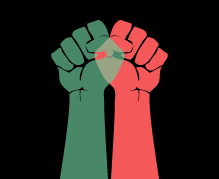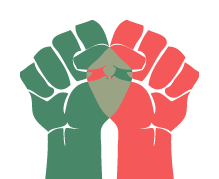If you ask me what it’s like being a migrant woman in Ireland I’d say it is a constant pressure. I have been a migrant woman in both England and Ireland. The difference in terms of reproductive health was a peace of mind. A peace of mind that came with the fact that I didn’t need outstanding legal and financial resources to take care of my reproductive health. I knew I could go have an open, realistic, and non-judgemental conversation with my GP about my reproductive health and my options. Because that’s all it boils down to. Options.
The fact that abortion is legal does not mean that it is used as a contraceptive method, as the anti-choice side often says. It simply means that women can breathe easily knowing that their lives, their mental health or their general well-being are in their control. It was a freedom I took for granted. In Ireland, things are a bit different. The 8th amendment equates the life of the mother with the life of the unborn and makes abortion illegal unless under certain, debatable, circumstances. Realistically, it puts the unborn above the women.
Although I love this country, with moving here came a sudden realisation that, should an unplanned pregnancy happen to me I would have to go to great lengths to make the best decision for myself. Besides that, I had the experience of getting diagnosed with endometriosis- a condition that affects your reproductive system. Without lingering too much on the topic, what came with that diagnosis was the realisation that female reproductive health is somewhat of a taboo subject if it isn’t connected to motherhood. My doctor kept reassuring me that my ability to have children was being looked after, but not much information was being given about how a condition that is notorious for its painful symptoms would affect my life in other ways. Because in a country where the foetus’s life comes first, fertility comes first.
The 8th amendment isn’t connected just to abortion, but to general women’s health. Because if a woman’s health is primarily connected with giving birth, there isn’t a complex and complete outlook on the issue. The medical system misses out on all the other complex dimensions related to the health of the patient. And I was a lucky case. I could afford to access healthcare. There are migrant women who can’t.
Migrant women often do not have the documentation or the money to access maternity care or healthcare. In the context of abortion, the 13th amendment allows women to seek an abortion in a country where the service is legal. But migrant women might not have that choice. They often require visas and documents that take time to obtain, and abortions are time-sensitive. Take the case of Ms. Y. a migrant woman who came to Ireland as an asylum seeker. Ms. Y was kidnapped, beaten and raped in her country of origin and she discovered that she was pregnant upon arrival in Ireland. Despite consulting professionals who admitted that Ms. Y was depressed because of her pregnancy, despite being adamant about terminating her pregnancy and despite threatening and attempting to commit suicide, Ms. Y got trapped in paperwork and bureaucracy and was forced to give birth. The way the Irish authorities and medical professionals handled this case has since come under scrutiny, but that means nothing for Ms. Y who had to go through the psychological torture of carrying her pregnancy to term.
There’s also the case of Savita Halappanavar, a migrant woman who worked in Ireland and who suffered complications that were going to lead to a miscarriage. Despite Savita’s requests for an abortion, she was told that she was in a Catholic country. Meaning, if the foetus had a heartbeat they weren’t going to intervene. As a result, Savita died of septicemia, shortly after the dead foetus was removed.
Technically, abortions can be performed in certain circumstances like rape, or if the mother’s health is in danger, but that requires a lot of evidence that delays the procedure until it is often too late. Because if the intervention is illegal, medical professionals will not be so quick to intervene. If losing their job or going to prison is at the end of that intervention, their instincts will tell them to wait. Because if women’s health equals motherhood, then birth will be a priority. In Ms. Y’s case, waiting forced a rape victim to carry the pregnancy to term. In Savita’s case, waiting was a death sentence.
So if you ask me what it’s like to be a migrant woman in Ireland, coming from a country where abortion is legal I would describe it as a constant pressure. The pressure of knowing that your sexuality is covered in shame, that your reproductive health is criminalised. That your health depends on paperwork, money and, ultimately, privilege. A privilege you may not have. It is knowing that if you needed an abortion, you’d have to leave the country like a criminal, or you’d have to bow down and beg the authorities to let you do the best thing for you. It is also knowing that a different reality exists and that this is not normal.





